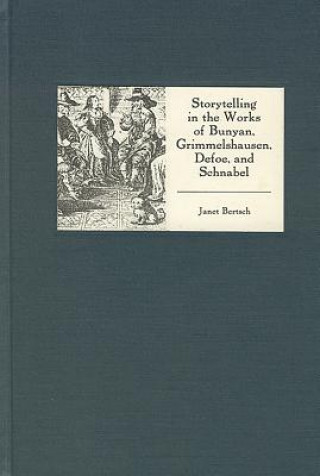
Kód: 04818706
Storytelling in the Works of Bunyan, Grimmelshausen, Defoe, and Schnabel
Autor Janet Bertsch
The modern novel appeared during the period of secularization and intellectual change that took place between 1660 and 1740. This book examines John Bunyan's "Grace Abounding" and "The Pilgrim's Progress", Johann Grimmelshausen's ... celý popis
- Jazyk:
 Angličtina
Angličtina - Väzba: Pevná
- Počet strán: 162
Nakladateľ: Boydell & Brewer Ltd, 2004
- Viac informácií o knihe

118.93 €
Dostupnosť:
50 % šanca Máme informáciu, že by titul mohol byť dostupný. Na základe vašej objednávky sa ho pokúsime do 6 týždňov zabezpečiť.
Máme informáciu, že by titul mohol byť dostupný. Na základe vašej objednávky sa ho pokúsime do 6 týždňov zabezpečiť.Prehľadáme celý svet
Mohlo by sa vám tiež páčiť
-

Wesley Mitchell (1874-1948), John Commons (1862-1945), Clarence Ayres (1891-1972)
179.01 € -10 % -

Makkah and Madinah Activity Book
5.92 € -19 % -

12 Steps That Can Change Your Life
11.64 € -19 % -

Computational Biology
200.88 € -17 %
Darujte túto knihu ešte dnes
- Objednajte knihu a vyberte Zaslať ako darček.
- Obratom obdržíte darovací poukaz na knihu, ktorý môžete ihneď odovzdať obdarovanému.
- Knihu zašleme na adresu obdarovaného, o nič sa nestaráte.
Informovať o naskladnení knihy
Zadajte do formulára e-mailovú adresu a akonáhle knihu naskladníme, zašleme vám o tom správu. Postrážime všetko za vás.
Viac informácií o knihe Storytelling in the Works of Bunyan, Grimmelshausen, Defoe, and Schnabel
Nákupom získate 295 bodov
 Anotácia knihy
Anotácia knihy
The modern novel appeared during the period of secularization and intellectual change that took place between 1660 and 1740. This book examines John Bunyan's "Grace Abounding" and "The Pilgrim's Progress", Johann Grimmelshausen's "Simplicissimus", Daniel Defoe's "Robinson Crusoe" and J. G. Schnabel's "Insel Felsenburg" as prose works that reflect the stages in this transition. The protagonists in these works try to learn to use language in a pure, uncorrupted way. Their attitudes towards language are founded on their understanding of the Bible, and when they tell their life stories, they follow the structure of the Bible, because they accept it as the paradigmatic story. Thus the Bible becomes a tool to justify the value of telling any story. The authors try to give their own texts some of Scripture's authority by imitating the biblical model, but this leads to problems with closure and other tensions.If Bunyan's explicitly religious works affirm the value of individual narratives as part of a single, universal story, Grimmelshausen's and Defoe's protagonists effectively replace the sacred text with their own powerful, authoritative stories. J. G.Schnabel illustrates the extent of the secularization process in "Insel Felsenburg" when he defends the entertainment value of escapist fiction and uses the Bible as the fictional foundation of his utopian civilization: arguments about the moral value of narrative give way to the depiction of storytelling as an end in itself. But Bunyan, Grimmelshausen, Defoe, and Schnabel all use positive examples of the transfiguring effect of reading and telling stories, whether sacred or secular, to justify the value of their own works. Janet Bertsch teaches at Wolfson and Trinity College, Cambridge.
 Parametre knihy
Parametre knihy
Zaradenie knihy Knihy po anglicky Literature & literary studies Literature: history & criticism Literary studies: general
118.93 €
- Celý názov: Storytelling in the Works of Bunyan, Grimmelshausen, Defoe, and Schnabel
- Autor: Janet Bertsch
- Jazyk:
 Angličtina
Angličtina - Väzba: Pevná
- Počet strán: 162
- EAN: 9781571132994
- ID: 04818706
- Nakladateľ: Boydell & Brewer Ltd
- Hmotnosť: 390 g
- Rozmery: 229 × 152 × 22 mm
- Dátum vydania: 15. October 2004
Obľúbené z iného súdka
-

Saga of Tanya the Evil, Vol. 3
10.21 € -28 % -

How to Read a Book
14.09 € -11 % -

Study Guide for Harlan Ellison's I Have No Mouth and I Must Scream
12.66 € -

Slow Violence and the Environmentalism of the Poor
26.45 € -7 % -

History of Hungarian Literature
23.90 € -

Conversations with Kafka
14.50 € -16 % -

Anxiety of Influence
22.98 € -1 % -

Transformations of Circe
32.28 € -10 % -

Oxford Handbook of Neo-Latin
215.59 € -
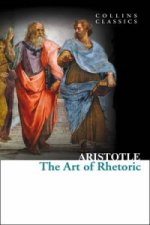
Art of Rhetoric
3.57 € -4 % -

Mysteries of Udolpho
10 € -31 % -

Hamlet: The Oxford Shakespeare
9.39 € -24 % -

Selected Essays
10.41 € -28 % -
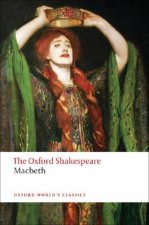
Tragedy of Macbeth: The Oxford Shakespeare
18.28 € -

Finn and Hengest
10.41 € -28 % -

Complete Poems of Hart Crane
17.97 € -7 % -

On Writers and Writing
11.43 € -28 % -

Plato Opera Vol. II
58.33 € -

The Picture of Dorian Gray
6.63 € -25 % -

Collected Poems
19.51 € -28 % -

Moveable Feast
9.59 € -20 % -
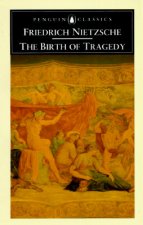
Birth of Tragedy
9.39 € -28 % -

Golden Bough
17.77 € -19 % -

Gulliver's Travels
6.43 € -27 % -

Leaves of Grass
18.59 € -

Tragedy of King Richard III: The Oxford Shakespeare
8.37 € -24 % -

The Tempest: The Oxford Shakespeare
8.37 € -28 % -

Guide to Old English 8e
47.71 € -

Robinson Crusoe
7.76 € -24 % -

Rumi: The Big Red Book
14.09 € -18 % -

Republic
37.18 € -

Tom Jones
9.80 € -5 % -

Selected Journals of L.M. Montgomery
21.14 € -10 % -

Measure for Measure: The Oxford Shakespeare
8.78 € -28 % -

Early Greek Myth
44.64 € -
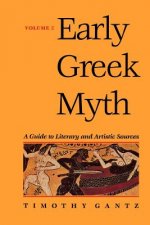
Early Greek Myth
44.64 € -

Short Oxford History of English Literature
52.31 € -

Karamazov Brothers
10.62 € -26 % -

Sir Gawain and The Green Knight
8.37 € -28 % -

Paradise Lost
16.03 € -25 % -

Sir Gawain and the Green Knight
19.51 € -28 % -

Cambridge Old English Reader
41.88 € -4 % -

Life and Crimes of Agatha Christie
13.48 € -28 % -

W. B. Yeats
9.39 € -28 % -

Charterhouse of Parma
13.78 € -

Kafka
25.84 € -11 % -
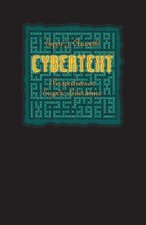
Cybertext
32.07 € -9 % -

French Lieutenant's Woman: York Notes Advanced
9.39 € -19 % -

On the Soul
10.41 € -28 %
Osobný odber Bratislava a 2642 dalších
Copyright ©2008-24 najlacnejsie-knihy.sk Všetky práva vyhradenéSúkromieCookies


 21 miliónov titulov
21 miliónov titulov Vrátenie do mesiaca
Vrátenie do mesiaca 02/210 210 99 (8-15.30h)
02/210 210 99 (8-15.30h)